The sun, barely peeking over the contour of the forest, found me and my friend already uploading the pontoon with sandwiches and fishing tackle and clamping on the outboard motor. My buddy started at a slow pace but opened throttle after he was convinced of the boat’s stability.
We were going to Nestor Falls for more provisions. The trip between our outpost camp at Kishkutena Lake, Ontario, and Nestor Falls is about twenty-five miles, and because five small portages interrupt the waterway, we decided to use a pontoon and out the five-horsepower motor. The pontoon would be much easier to portage than a large boat — and my friend and I were willing to risk anything to reduce the drudgeries of portaging.
Thanks to the maneuverability of our pontoon, the two portages between Marl lakes and Kishkutena were a breeze. The later piece of water after Marl Lake was a channel that looked very tempting. Tall bull rushes lined its shores, batches of lily pads dotted the channel, weed tickled the water’s surface, and semi-submerged logs could be seen in many places.
Lots of frogs playing around at the water’s edge reminded us about huge fishing opportunities, and when one of the frogs didn’t make it back to the shore, we were convinced. The splash was a heavy one. The fish had not come out of the water but merely rolled on the surface. The big broad tail, the only visible part of the fish, marked that it was a muskie and possibly an impressive one.
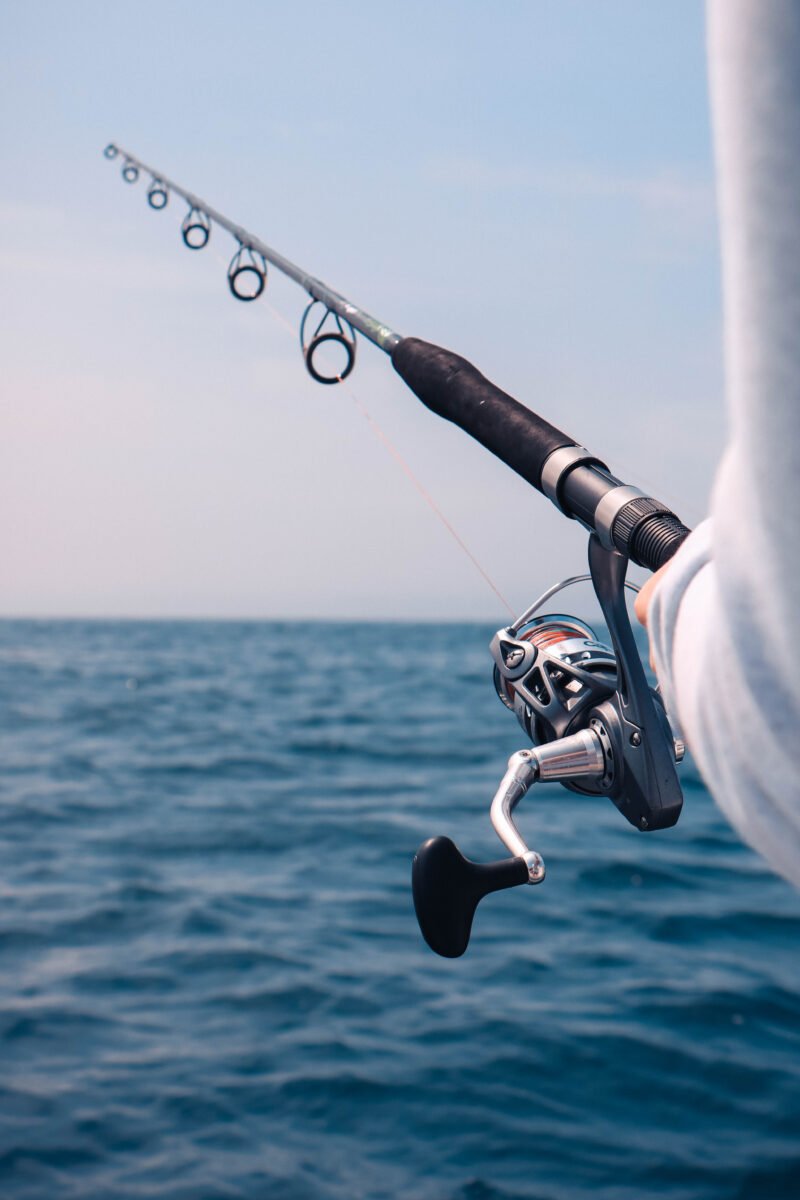
“I think we should stay and fish here for some time!” I said.
A few bass made their appearance and the activity was too much for us. My buddy stopped the motor, and soon we began putting our fly rods together.
“Alright, let’s stop here for a moment — but only for a while. Then we better get moving,” My friend was always the more pragmatic person.
It wasn’t long before we were false casting, and it wasn’t much later when I received the first strike. It was a bass — three pounds or more — but the refreshingly cold waters of Ontario caused the fish to fight back heavily. This bass knew all the tricks of the bass-book, when to pull, when to flip, when to stop, and when to skew — but the hook was well set.
“Pull that sardine out, and let me look for a real fish,” my buddy teased. Sure enough, his fly rod arched and strained in shaking motions. A big smirk formed on his face. He had a nice fish there and he knew it. Soon it was flopping on the pontoon’s floor.
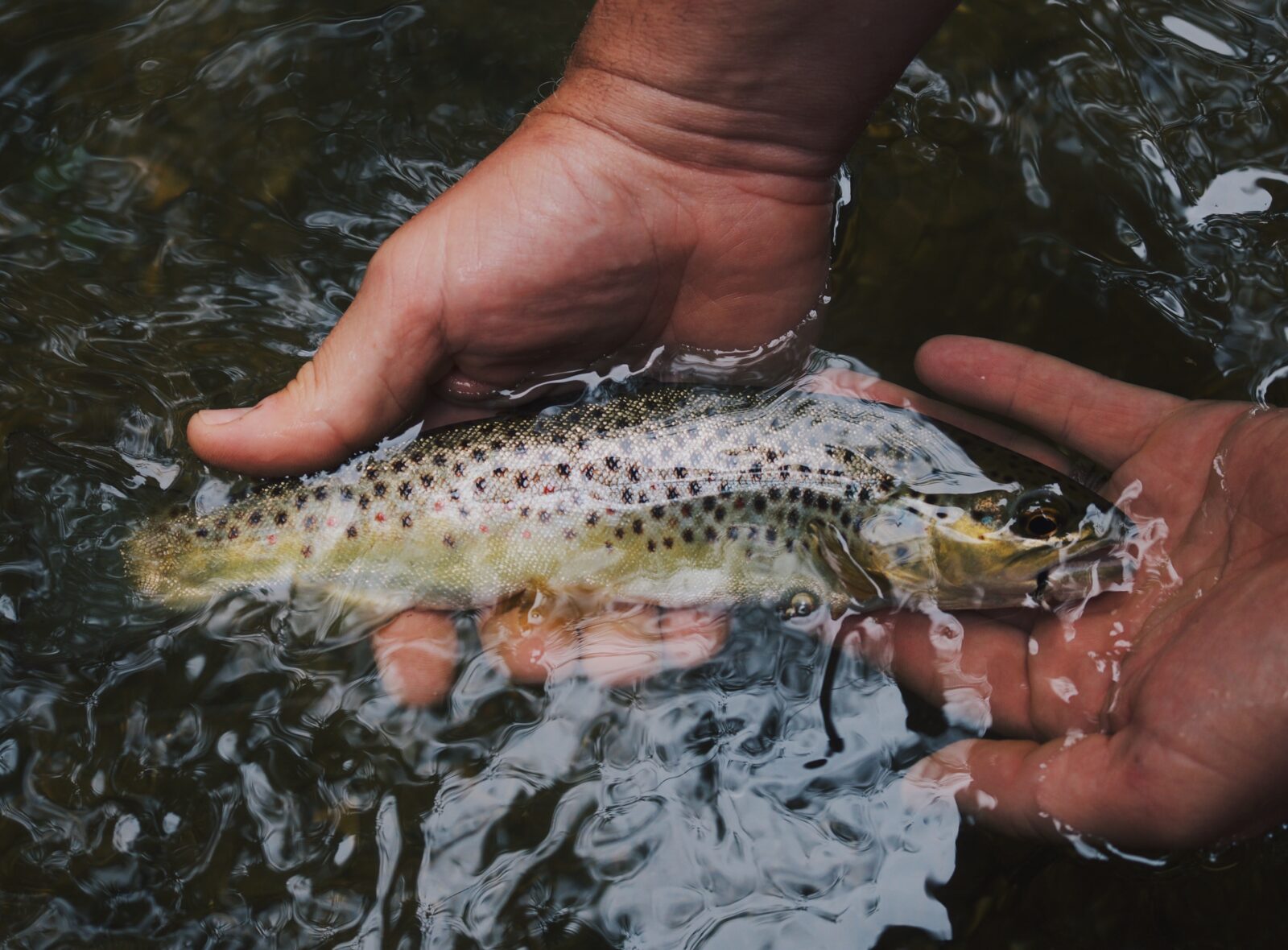
We proceeded forward and before I could make a cast my buddy was onto another catch. This one jumped three times, and what it lacked in weight it made up with viciousness.
“I think I’ll take photos. The bass are really hitting it.” I reached for my camera and I was ready for action.
And the fish really worked with me. Practically at every pool, hole or turn of the stream, we were able to land at least one fish. Then the activity in that area would cease, possibly because of the disturbance created, but we didn’t mind. We needed only to move to another place or stretch, and this stream seemed to be filled with a neverending amount of attractive waters, and its opportunities seemed almost unlimited — truly an angler’s paradise.
We crossed Wigwam Lake and came to another waterway. Quietly we paddled into the stream and placed our pontoon broadside to the lily pads. My buddy extended his fly-line back and forth until he has tripped enough line. Finally, he allowed the line to unfold on the surface, and the streamer landed with a spat. Then he allowed the fly to remain motionless for a few seconds, and finally, he switched the rod tip slowly so that the streamer would sink, leaving a slight dimple marking its submergence. He then began retrieving the big streamer in short vibrating jerks.
“Don’t you tell me we’re not going to catch something here!” I said disappointed. “Just look at all the weeds, pads, and cover… and deep water too. What else do they want?”
And then we got our answers. The water erupted in a thousand drops, as vice-like jaws grabbed the imitative morsel and surged skyward. Instantly — with innate reflexes — I took a picture.
I wasn’t the jaws of a bass that grabbed the streamer, for these had teeth. Nor was it the stocky, short body of a bass that catapulted out of the water. It was a prolonged, slim, striped body — undeniably a muskie: the final boss of freshwater fishing!
“It’s a freaking muskie! A muskie!” My buddy shouted. The striking of the fish, the snapping of the shutter, the setting of the hook, and my friend’s voice occurred practically at the same time. Only a split second separated these events. My friend had always said that one of his piscatorial dreams is to catch a legal muskie with a light bass fly rod, and now he was getting close to his goal.
For some reason, the fish didn’t fight very hard. It swam to our pontoon in a most relaxed manner — and just stared us in the eyes. After all, it was the big guy of the lake, what could it fear?
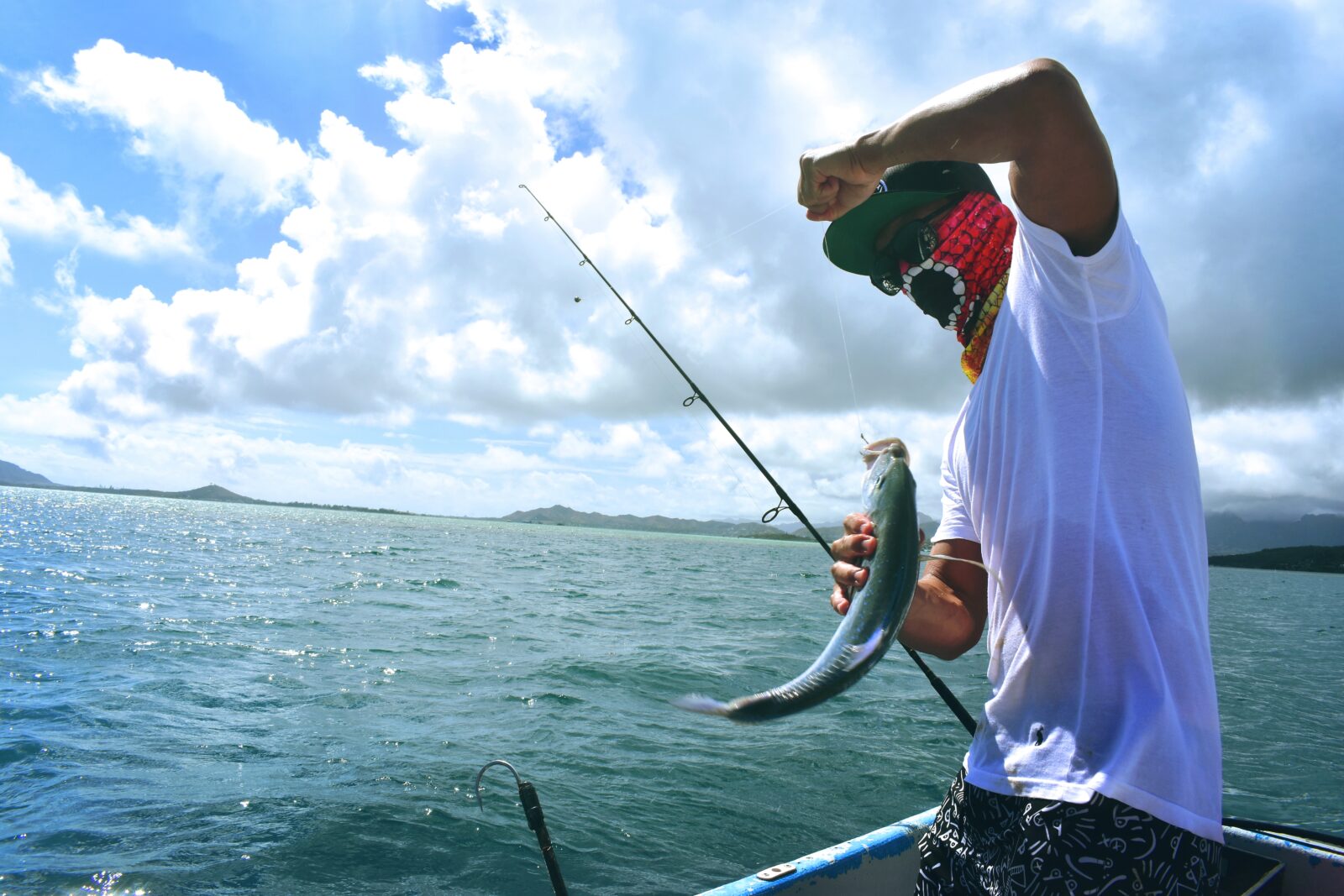
“Wonder why the fish doesn’t fight? Why is it just staring?”
Suddenly, its huge tail violently slashed the water surface, and the striped shape torpedoed under. The surface erupted again with a huge splash as the muskie ejected from his medium. Up it came, gills flashing with brilliant colors, head thrashing from side to side in anger. Then he landed with a mighty spat. The culmination of this jump had been recorded on video. Or, at least I hoped it was.
The reel screeched furiously as the rod strained its maximum output. My buddy’s thumb and finger must’ve burned like hell as he braked the line melting off the reel. If he could only keep the muskie away from the pads. If only the nylon leader would hold. If only the hook had penetrated into the bony palate. It… too many ifs. The odds seemed heavily stacked against us. But then we had solid instincts developed over decades of fishing.
The fish has changed its mind and decided on a huge fight. It whirled and came onto us with blazing speed. With much deftness, my friend stripped in line almost as fast as the fish came ion, for allowing a muskie even the smaller degree of slack would result in a definite disaster. The fish continued it’s course and dived under the canoe, but the angler met this challenge by passing the rod around the stern. The dear muskie surfaced and remained there. It created more fuss and foam than I have ever seen in my long life!
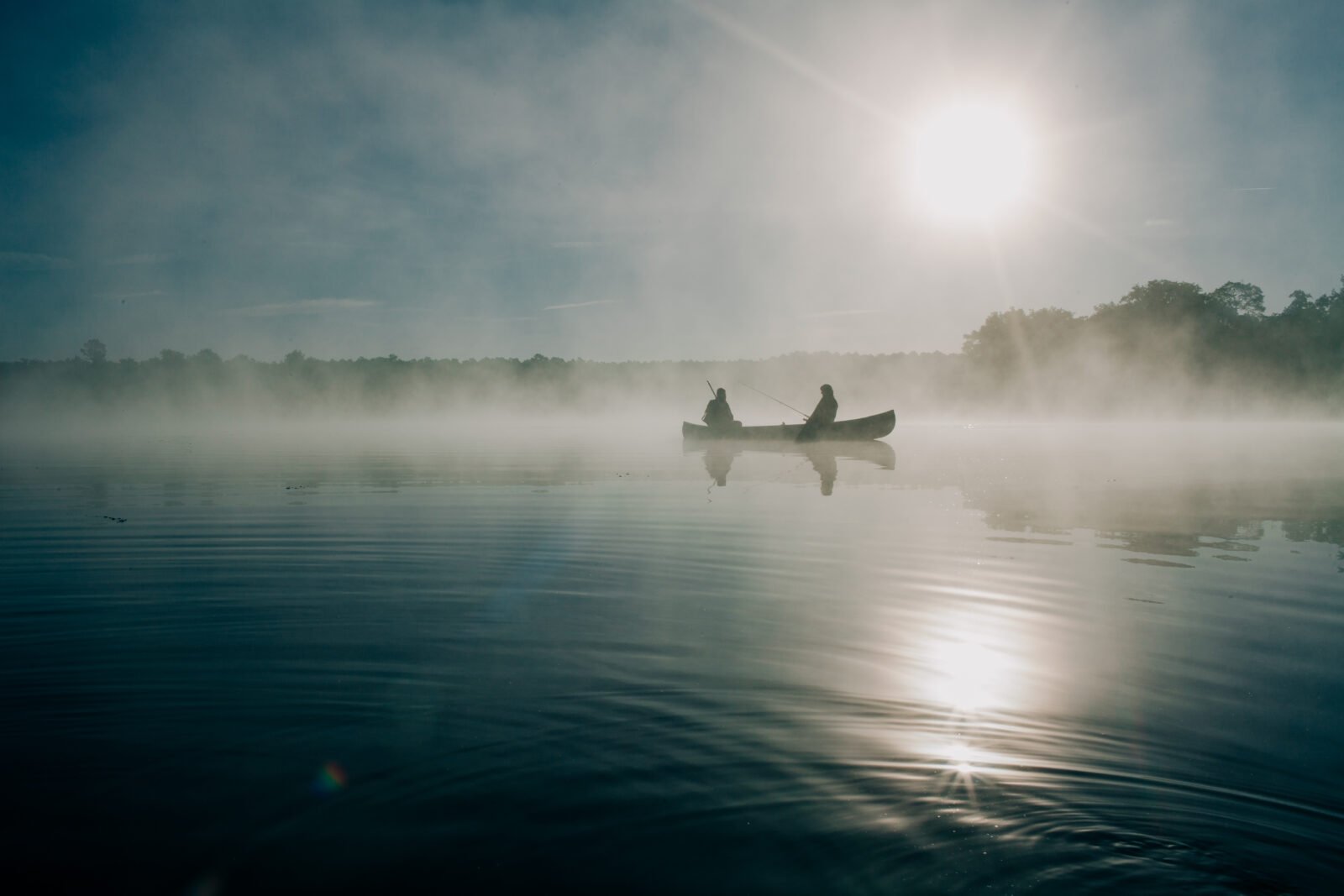
“Give him the line! What’s the matter with you? Give him the line!” I shouted.
Then I realized why he couldn’t. It wasn’t possible. The surplus line, which had been stripped in on the pontoon’s floor, had kinked and knotted at the first-rod guide. My friend’s fingers quickly fumbled with the knot but realizing the impossibility he gave up. All he could do was lean over so the rod wouldn’t break into pieces.
“What a shot this will make!” I leaned over to get the fish and my buddy in one picture — and it happened!
Everything was dim. I felt freezing and wet. I could hear echoes and felt the pressure. Instantly several bucked of water rushed into my hip-boots I was wearing for portages, and my poplin jacket absorbed water like crazy. I touched the bottom for an instant, an oozy bottom it was, and then I automatically jumped to the surface.
I wiped the water from my own eyes and started swearing. I saw the overturned pontoon floating away. About ten feet from our boat, my friend came up and began swimming for it. He was cussing as well.
I thought of the pictures on my camera. I tried to hold it up above the surface, but after a few unsuccessful strokes with one arm I gave up on the idea. My clothes were just too heavy. Water-filled boots plus a saturated jacket are indeed a terrible handicap to the best swimmer, let alone myself.
Although my buddy wasn’t wearing hip-boots, he also found the going difficult because of the restrictive properties of clothes, but finally caught up with it.
He advanced the pontoon a considerable distance towards me, and soon safety was an arm’s distance away. I lunged. I was immensely relieved that my hand found its target.
We both clung to the pontoon for a few seconds to rest. Then holding the pontoon with one hand, and using the free arm as a paddle we were able to bring it ashore and finally dumped the water.
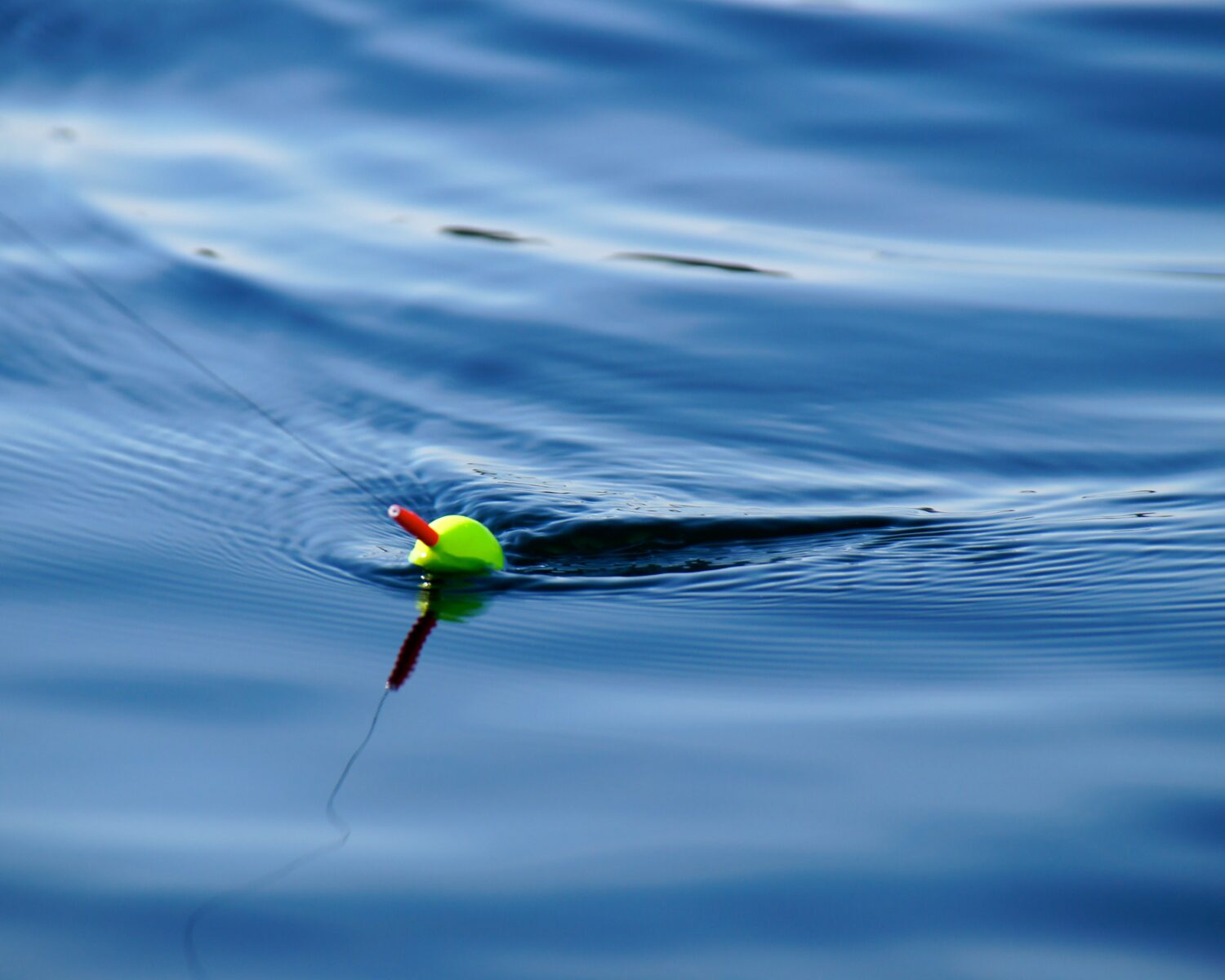
“Surely you don’t expect that motor to start after that dunking, do you?” I asked.
Pffr! Prrt! What a sad sound it was. The motor was dead. My buddy turned away from the motor, wiped his brow, and picked up a paddle. “Guess we’re doing this old school for now — maybe try her later on.”
We paddled down the channel and made the remaining portages. We didn’t talk a lot. After that, we were practically exhausted, yet we still had ten miles to go.
“Let me try that damned motor again. I think she’s drained of all the water.”
“A brilliant idea,” I said this not because I expected it to start, but because we could rest a few more minutes.
Pfft! Still the same sad sound. “Maybe the water got into the gas tank — let me change the gas.”
Just as he finished pouring in the new gas, a huge bull moose, which was mouthing lily sprouts, rose from his semi-submerged position about 60 feet away from us. The lordly moose remained poised, so majestic, almost petrified. What a picture it’d make, and there I was with a damaged camera. Note to self: buy a backup waterproof camera.
The moose turned around, plodded through the waters, then he went up the bank and ambled through a faint trail into the woods.
“We’ll never make it paddling,” I said. “Try that motor again.”
My buddy placed his hand on the starting cord. We both looked up for a few seconds, and then I held my breath as he pulled the cord.
Still the same — or was it. I thought I heard it cough and then I was sure it turned over. We were moving. The motor had started! Surely, it never should have. It was underwater for too long. Perhaps it was the new gas, or maybe something else. I turned around and winked at my friend. He merely pointed to the sky.
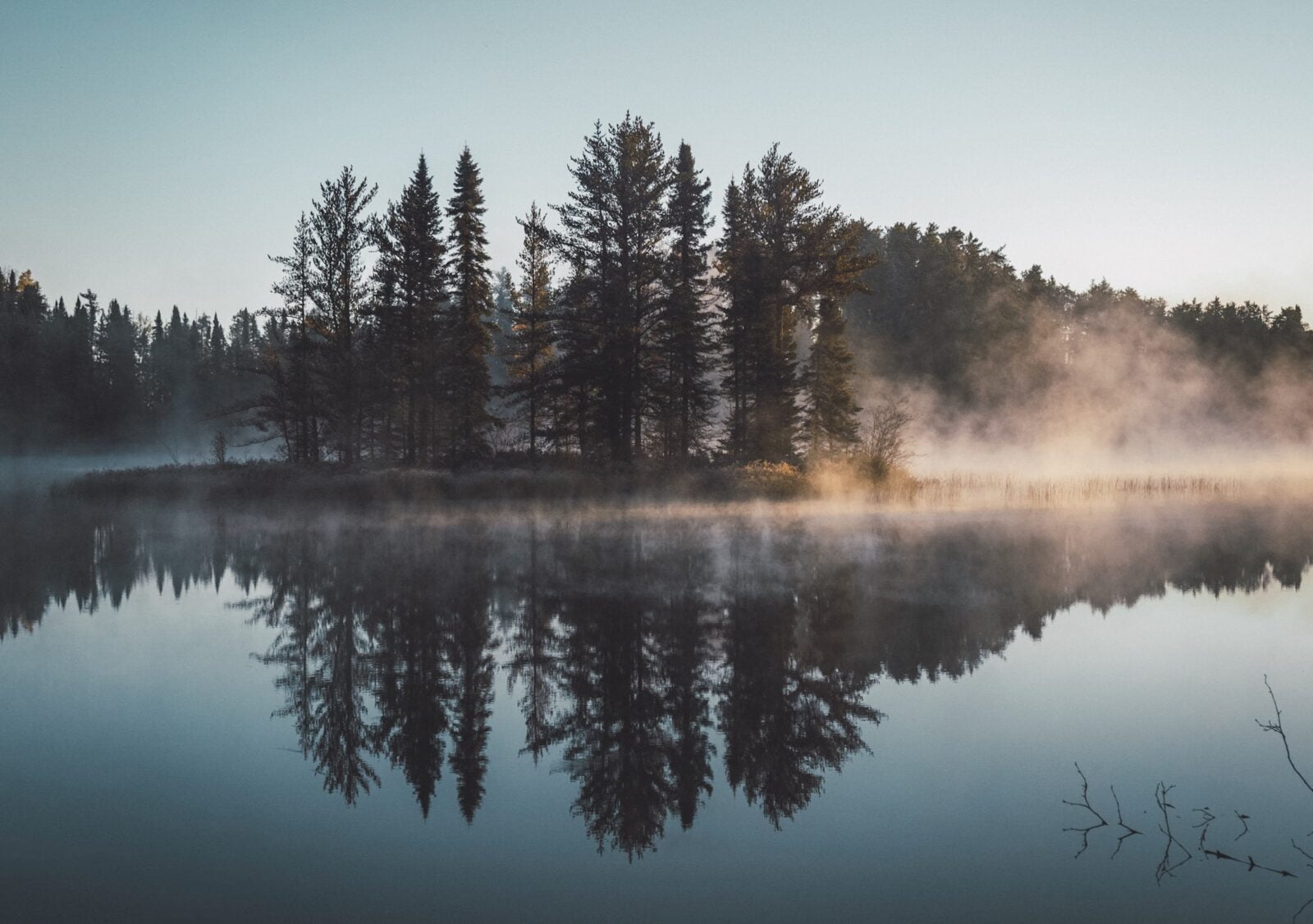
We reached Big Pine Lake in no time and then sped across Oar Bay and into Crooked Pine Lake. As we pulled around the dock we could distinguish our new camp at Nestor Falls. The sight of the camp silhouetted against the orange-colored sky was too beautiful to describe. The slowly rising puffs of smoke suggested that they had something warm on the stove.
After some delicious home-made cooking and a change of clothes, we related our adventure more than a few times to the visitors and guides who were all collected at the camp. That night we retired to comfortable beds which were luckily available.
“Say, buddy, I think we can get some muskies on flues over at Jackknife Portage,” I said jokingly.
He never answered. He was asleep. Anyway, I think we had enough fly-fishing muskies for a long, long time.


